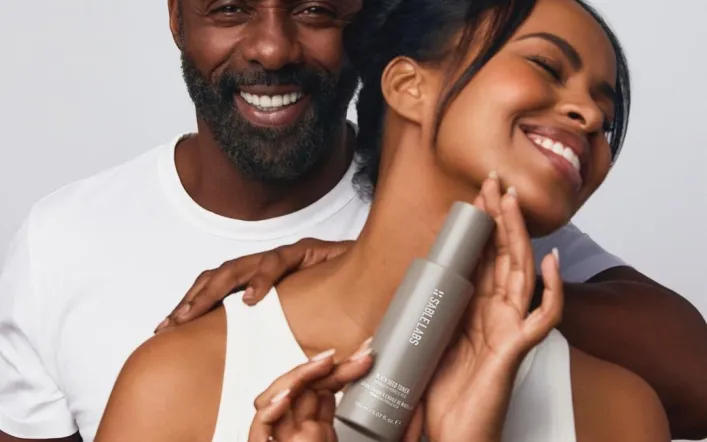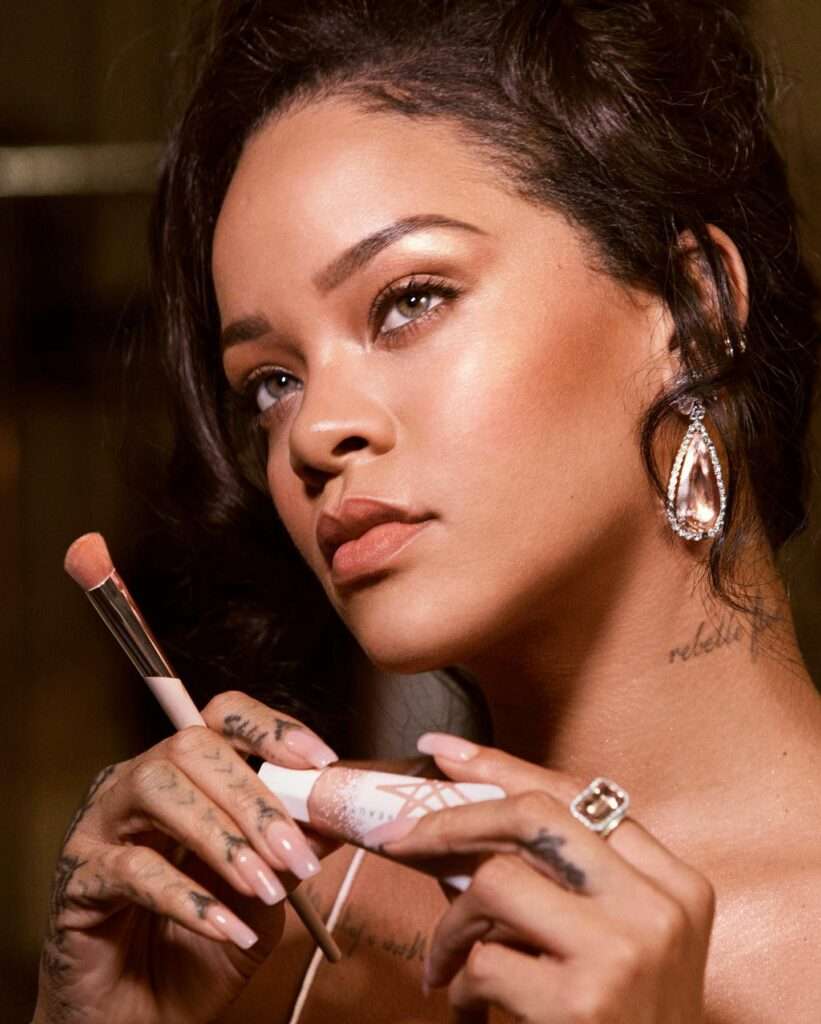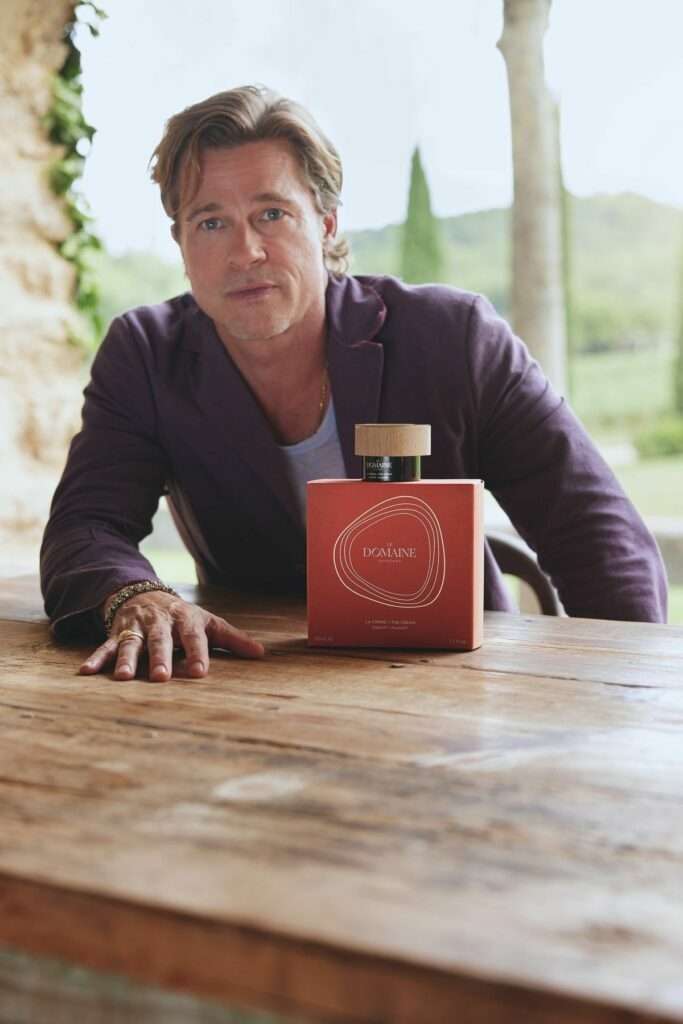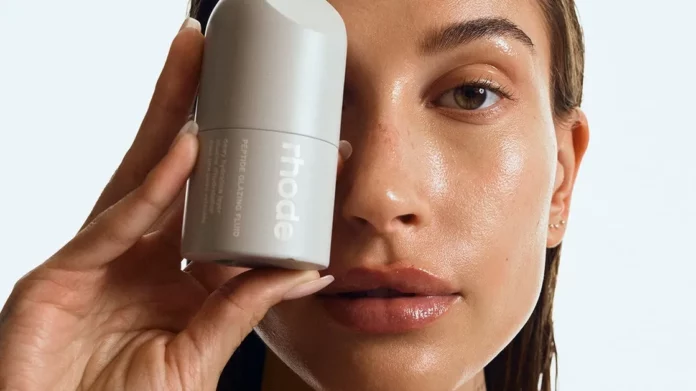Most understand by now that the world’s beaches are lined with plastic. Among the cigarette butts, single-use bags, and Coca-Cola bottles, lies a heck of a lot of waste from the beauty industry. And, arguably, celebrity brands are making the problem worse.
Right now, the hottest accessory in Hollywood is a beauty brand. From Rihanna to Idris Elba to Selena Gomez and Hailey Bieber, it’s starting to feel like you’d be hard-pressed to find a celebrity who hasn’t ventured into the skincare or makeup industry. But, unfortunately, many of these new lines are beyond harmless.

Every year, the cosmetics industry produces around 120 billion units of packaging, most of which isn’t recyclable. And unless these brands are totally single-use plastic-free (which spoiler alert, for the most part, isn’t the case), celebrities are only heaping more trash on the pile.
But it doesn’t have to be this way. Could A-listers be using their platforms and finances to solve beauty’s waste problem, rather than contribute to it?
Celebrity beauty attempts at sustainability
In 2017, Rihanna demonstrated the power of her influence when she transformed the beauty industry overnight. Before Fenty Beauty, it was hard to come by a truly skin tone-inclusive range of foundations. But that’s not the case anymore. Rihanna proves, that in business, star power goes a long way in changing the status quo. And the same could happen for sustainability.
Fenty is trying. After launching its skincare arm in 2020, Rihanna said in a statement that she wants “beautiful” packaging, with “an earth-conscious approach.” The brand says it is working on reducing “excess packaging” everywhere it can, and has introduced new refillable cosmetic and skincare products, including Fenty Icon lipsticks.

But it has a long way to go. Most of the Fenty range, including its best-selling foundations, don’t appear to be recyclable. At least, there isn’t any information readily available if they are. Its website says there is “a new recycling partnership in the works,” but offers no further details. The same can be said for several other popular celebrity beauty brands.
For example, Florence by Mills, launched by Stranger Things’ Mille Bobby Brown in 2019, states it is committed to remaining “responsible to our planet,” but still admits it uses single-use plastic across its range.
Gwyneth Paltrow just brought her clean label Good. Clean. Goop. at Target stores nationwide last October — but while the formulations may be clean and affordable, the packaging is all plastic, contributing to the global plastic waste problem.
Kylie Jenner’s beauty brand Kylie Cosmetics offers no information about its sustainability policies on its website. And while Lady Gaga’s Haus Labs says it “strives to use sustainable packaging materials,” there is little information given beyond the fact that its secondary cartons are recyclable.
To cut them a little slack, there is no doubt that making beauty products with good-for-the-planet packaging is tough. Most mainstream recycling facilities struggle to process small, fiddly items like mascara tubes and pumps, for example.
But, that said, producing even more of these items isn’t the answer. It only adds to the rapidly growing trash problem. And make no mistake, these brands are churning out a lot of plastic-packed products every day. Enough, at least, to turn Rihanna into a billionaire, and get Jenner pretty close.
Using money and power to create a sustainable beauty industry
Some celebrity beauty brands are succeeding when it comes to sustainable packaging.
Brad Pitt’s Le Domaine utilizes refillable bottles. And Stella McCartney’s skincare line is 100 percent reusable, recyclable, and refillable. The designer told Glamour ahead of the launch: “At every stage I have challenged myself to make the most responsible decisions.”
But it seems those responsible decisions come with a price tag. McCartney’s Restore Cream moisturizer comes in at $105 per pot. Pitt’s The Cream will set you back a cool $320. Compared with Kylie Skin’s $28 Clarifying Gel Cream and Fenty’s $42 Brightening Overnight Recovery Gel-Cream, for the average beauty-lover, there’s no competition. The latter are for the masses, while the former are very much for the privileged few.

So what’s the answer? Another celebrity launches another beauty brand that manages to deliver on both affordability and sustainability? Perhaps. That is if the industry can squeeze in yet another big name trying to sell another serum.
Maybe, though, celebrities could start using their money and influence to pull the strings from behind the scenes, to finance the innovation that helps scale the packaging solutions that are really going to change the game for beauty. Or, they could even attach their faces to brands that are already doing the most for the planet. Without the big price tag.
To name just a handful of examples, Upcircle Beauty offers a whole range of plastic-free moisturizers for less than $30. Bolt Beauty packages its cleansers, moisturizers, and serums in biodegradable capsules made from seaweed and sells all three for less than £15. Axiology sells its plastic-free lipstick sets for under $40.
There’s no doubt, celebrity status, money, power, and follower count can bolster the sustainable solutions created by these brands, and create enormous change in an industry that is suffocating the planet with plastic. But to do so means putting their money with their mouths are, and leaving their egos at the door.
Related on Ethos:


